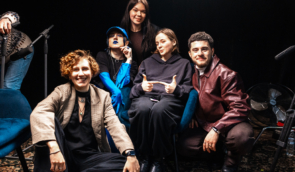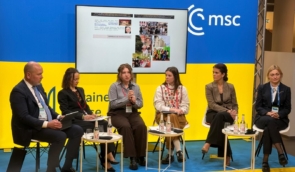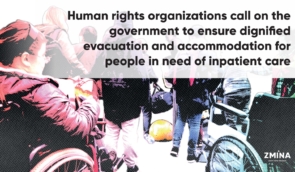ZMINA held an event at the OSCE on the losses of civil society during Russia’s war against Ukraine
The Human Rights Centre ZMINA held a special event, “Voices in the Darkness: Civil Society Resistance and Losses during Russia’s War against Ukraine” within the framework of the OSCE Supplementary Human Dimension Meeting. Relatives of civil society representatives affected by the Russian aggression joined the event.
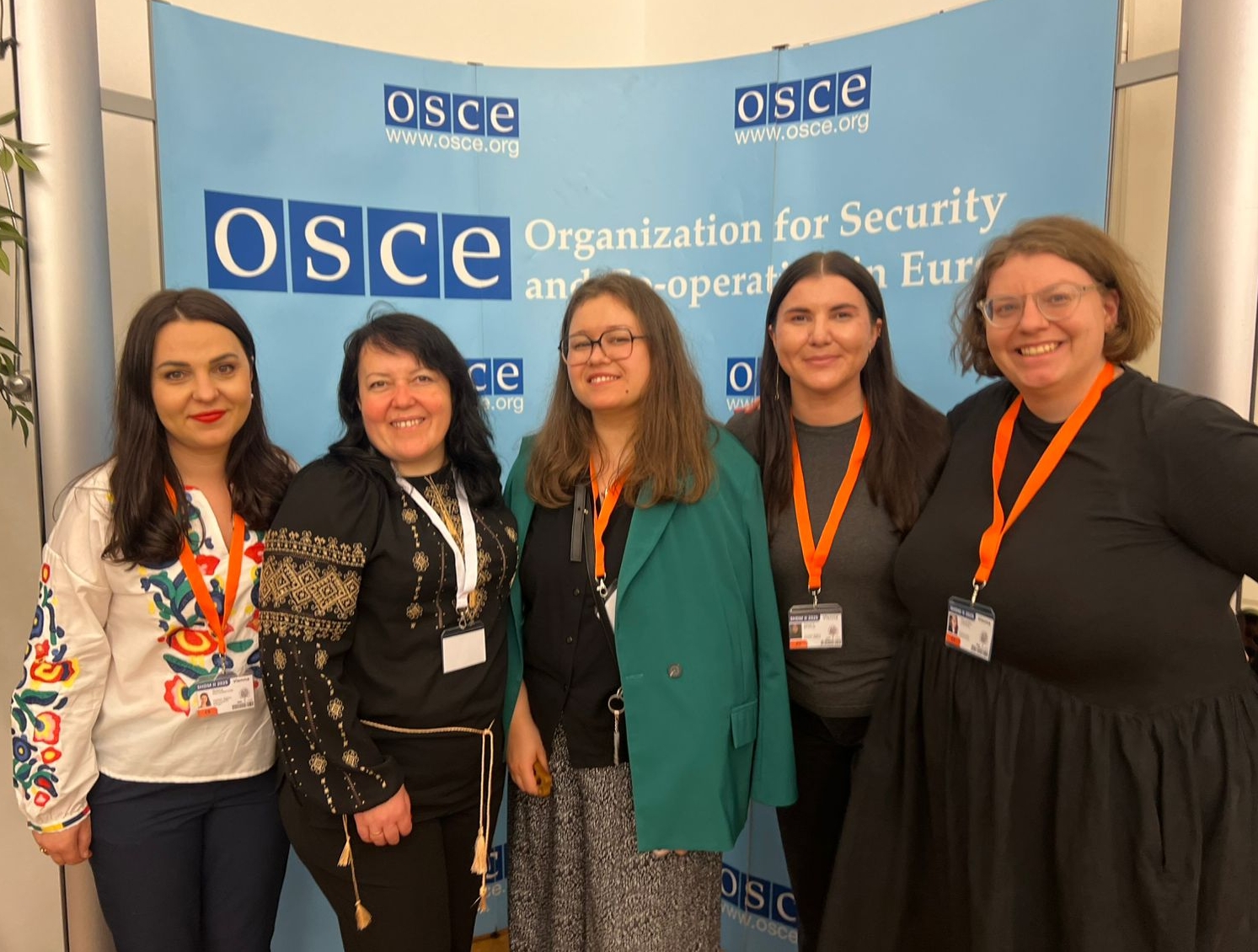
Ukrainian human rights defenders aimed to show diplomats and international partners the critical role of Ukrainian civil society amid Russia’s invasion, with a particular focus on the human cost of the war.
The event was opened by Yurii Vitrenko, Permanent Representative of Ukraine to the International Organisations in Vienna, and Anu Juvonen, Special Representative for Civil Society of the Permanent Mission of Finland to the OSCE.
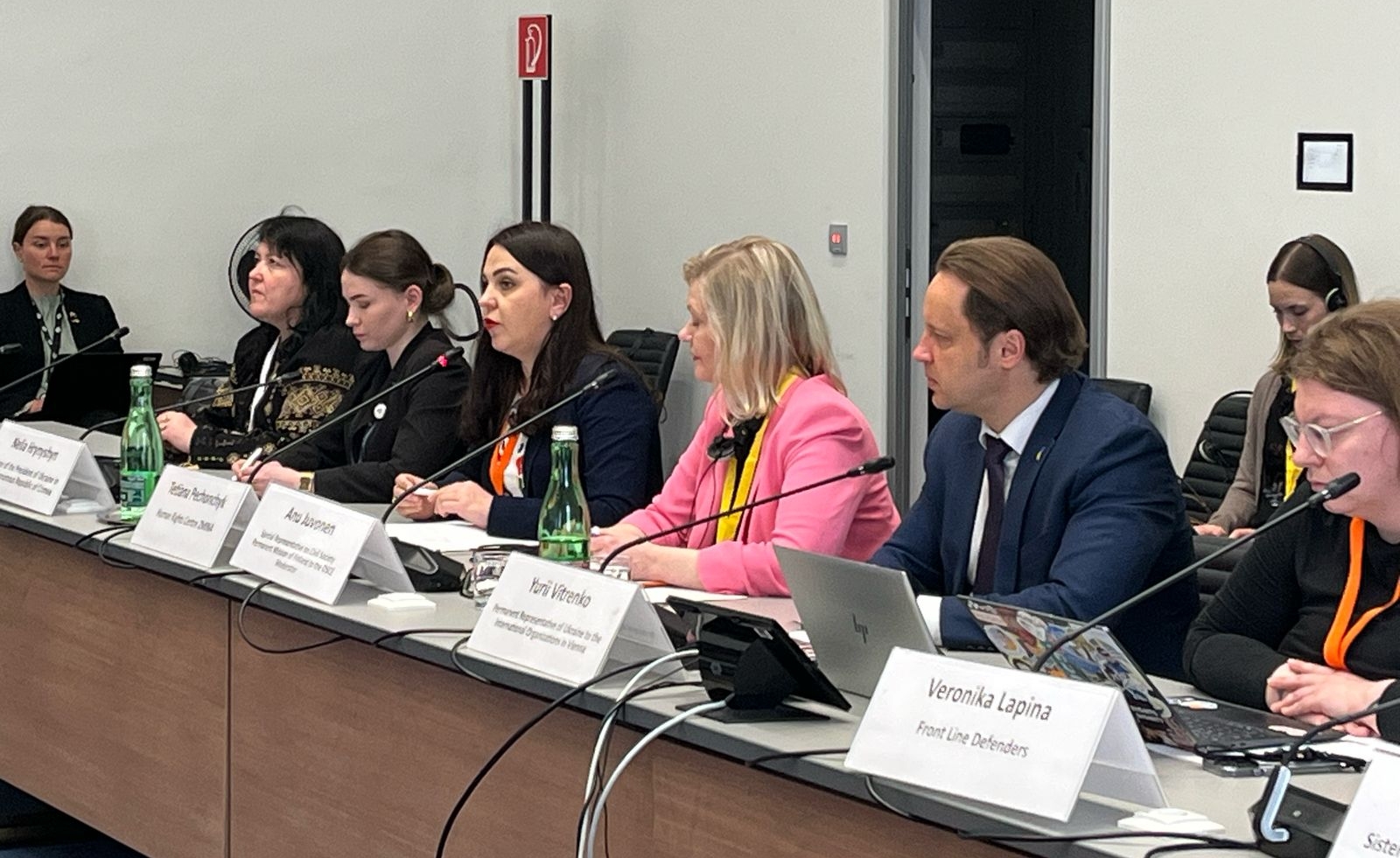
Tetiana Pechonchyk, the Head of the Board of the Human Rights Centre ZMINA, stressed that Russia’s full-scale invasion of Ukraine has caused numerous civilian casualties, including those of its most active part – civil society.
More than 120 activists, volunteers, human rights defenders and journalists are known to have been killed as a result of Russia’s full-scale aggression against Ukraine. These cases include both targeted attacks on media and civil society representatives, deaths in the line of duty, and indiscriminate attacks by the Russian Federation on Ukrainian civilians.
“Activists are in danger. In mid-March this year, a volunteer from Odesa, Demian Hanul, was assassinated. Also, in early May, another well-known activist, Serhii Sternenko, was attacked. These attacks may have been organised by the Russian FSB. Russia wants to intimidate activists who collect donations to support the Ukrainian army or civilians in Ukraine,” said Pechonchyk.
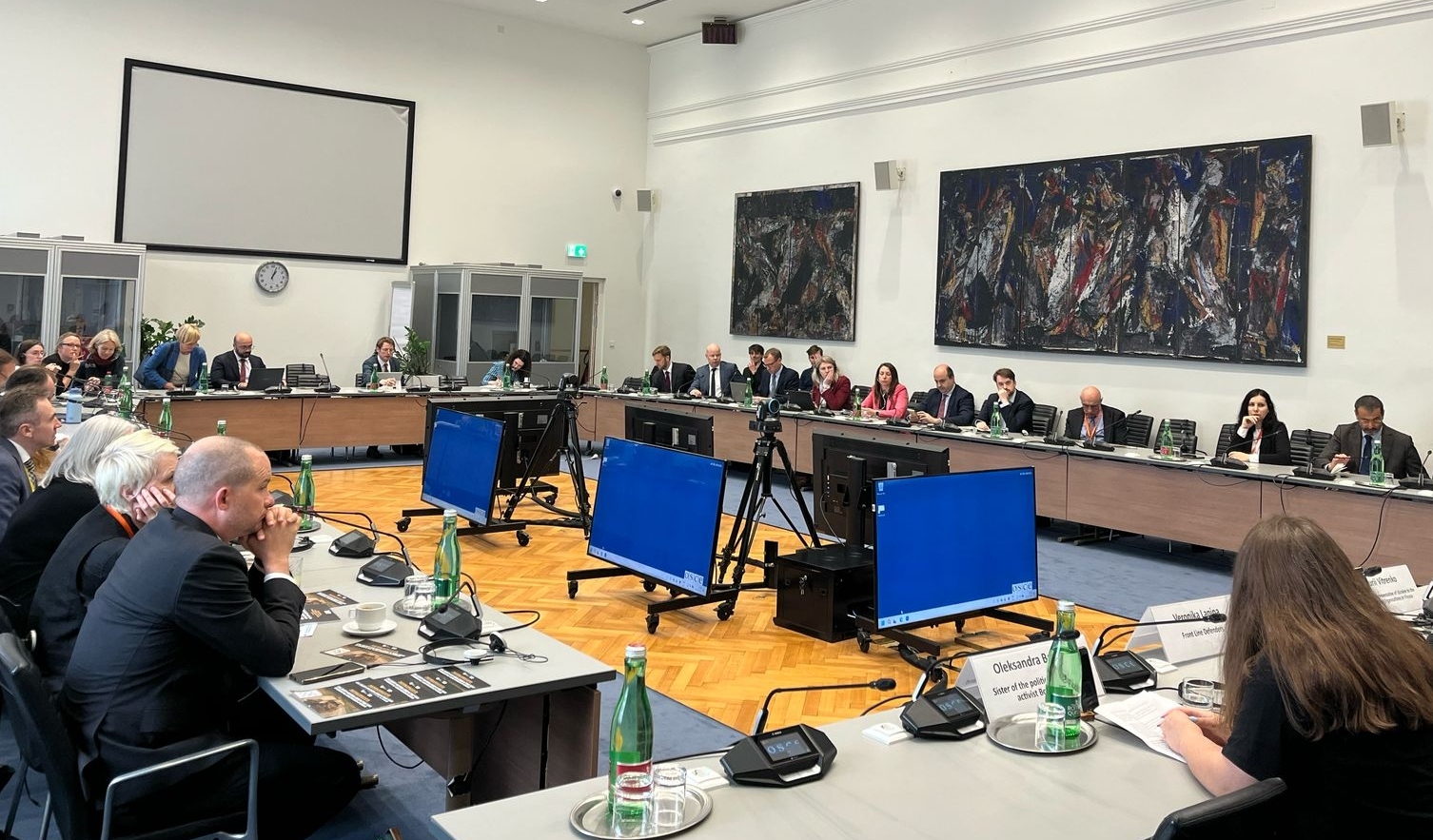
Human rights defenders honoured the memory of activists, volunteers, journalists and human rights defenders killed by Russia and reminded the world of their courage and commitment to truth and justice.
Yuliia Somina, a close relative of Illia Shkliaruk, a volunteer from Irpin who was killed by Russians at the beginning of the full-scale invasion, told diplomats how she and her family lived in the basement of a local church in 2022. Illia evacuated people under constant Russian shelling.
“On 5 March, he took us out of the city and returned to help people. And it lasted until 8 March. On that day, he called his wife and said he was going to evacuate people. After that, we lost contact with him. We didn’t know anything about Illia for a long time. We found Illia only after Irpin was liberated from the Russians… First, the car that had been run over by an APC in which he was evacuating people, and then Illia’s body, buried in a wooded area. He was completely riddled with bullets,” said Yuliia Somina.
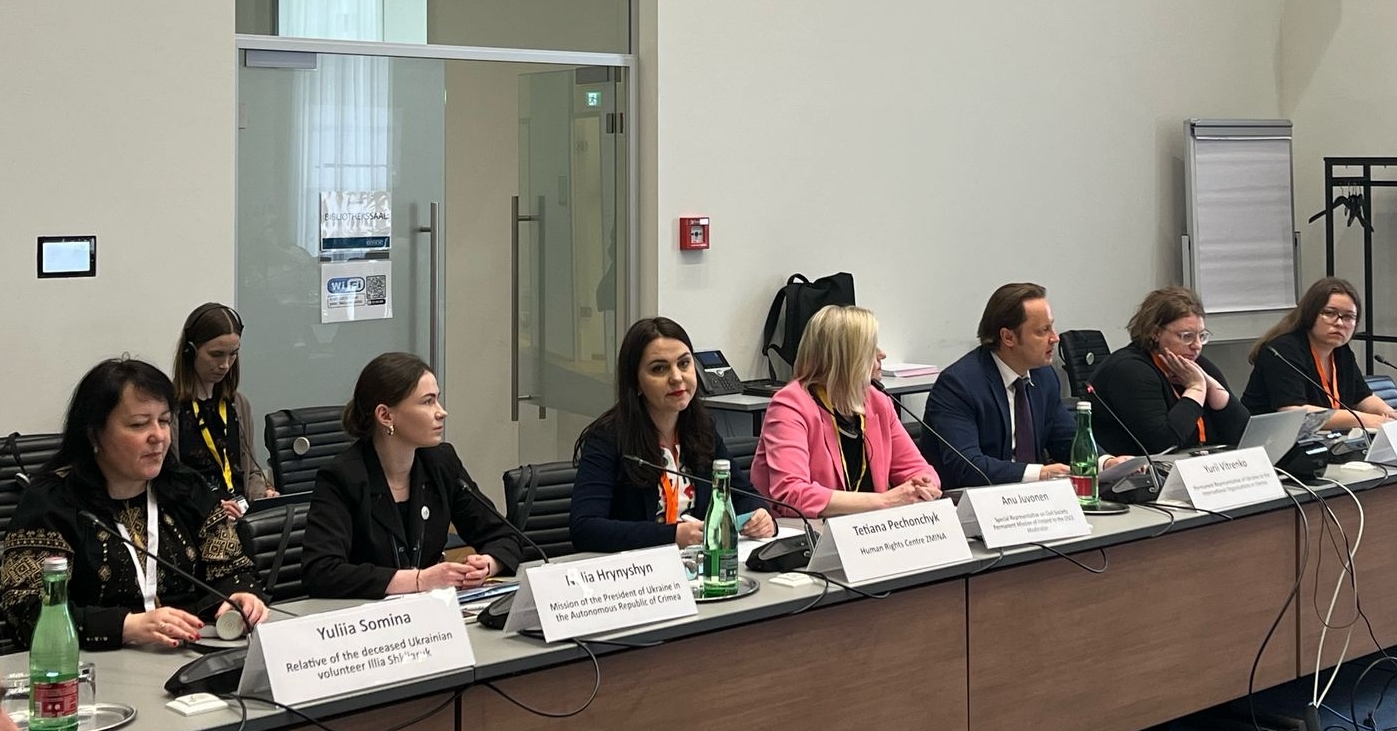
In addition to murders, Russia also persecutes, abducts and imprisons Ukrainian activists, in particular in the occupied Crimea. Nelia Hrynyshyn from the Mission of the President of Ukraine in the Autonomous Republic of Crimea spoke about this in more detail.
“Over the 11 years of Russia’s occupation of Crimea, the peninsula has turned into a military base and a prison for its residents. As of today, at least 223 Ukrainian citizens are political prisoners, 133 of them are Crimean Tatars. A significant number of detainees are human rights defenders and citizen journalists. Let me remind you of some of their names: Iryna Danylovych, Osman Arifmemetov, Server Mustafaiev, Vladyslav Yesypenko, Seiran Saliiev and others,” Hrynyshyn said.
She also noted Crimean women who are human rights defenders and lawyers, journalists and activists: they defend their relatives illegally detained by the occupiers, participate in public initiatives, including Crimean Solidarity, and raise children on their own while their husbands serve politically motivated sentences.
Independent media, journalists and bloggers are also in danger. According to the Mission, 18 Crimean journalists, citizen journalists and bloggers have been sentenced to long prison terms. People cannot freely exercise their right to freedom of speech: there are massive persecutions under the article on “discrediting the Russian army”. To date, over 1300 cases have been registered under this article.
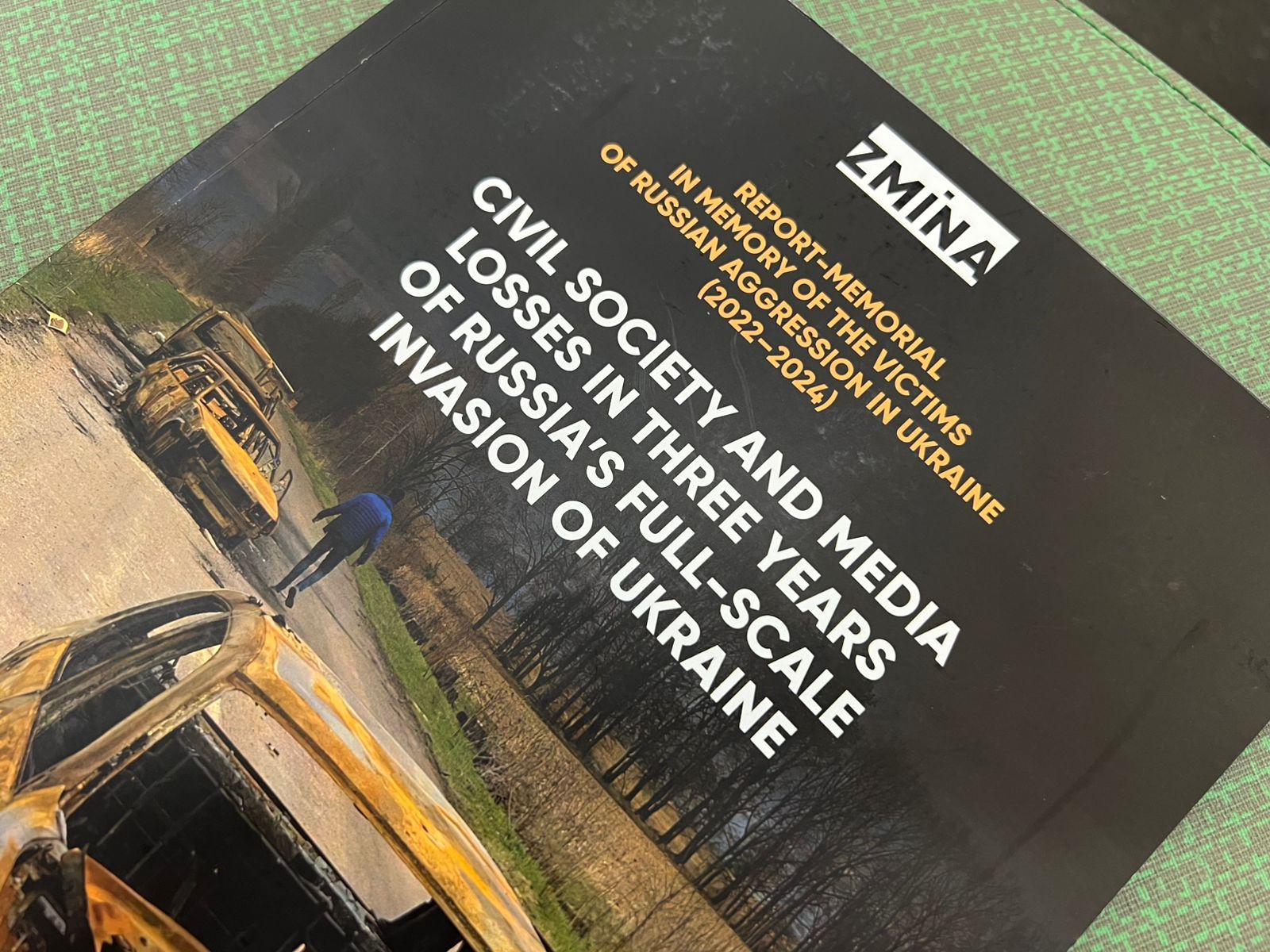
Oleksandra Barkova, the sister of political prisoner Bohdan Ziza, told the story of her brother’s detention by the occupation authorities of Crimea.
“My brother was detained on the night of 15-16 May 2022 for pouring blue and yellow paint on the door of the occupation administration. My brother is an artist, so with his art performance, he wanted to draw attention to the fact that Crimea is Ukraine,” says Barkova.
After the occupation of Crimea in 2014, Bohdan Ziza was forced to stay on the peninsula to take care of his elderly grandmother. In May 2022, the artist was appalled by the atrocities committed by Russians in Bucha and Irpin, after which he went out to protest and was detained and sentenced to 15 years under four terrorism-related charges.
“During his imprisonment, Bohdan has been regularly beaten and tortured. For a long time, an independent lawyer was not allowed to see him, he was hidden from us, and it was forbidden to take pictures of him during court hearings in order not to film evidence of the abuse,” said Oleksandra Barkova.
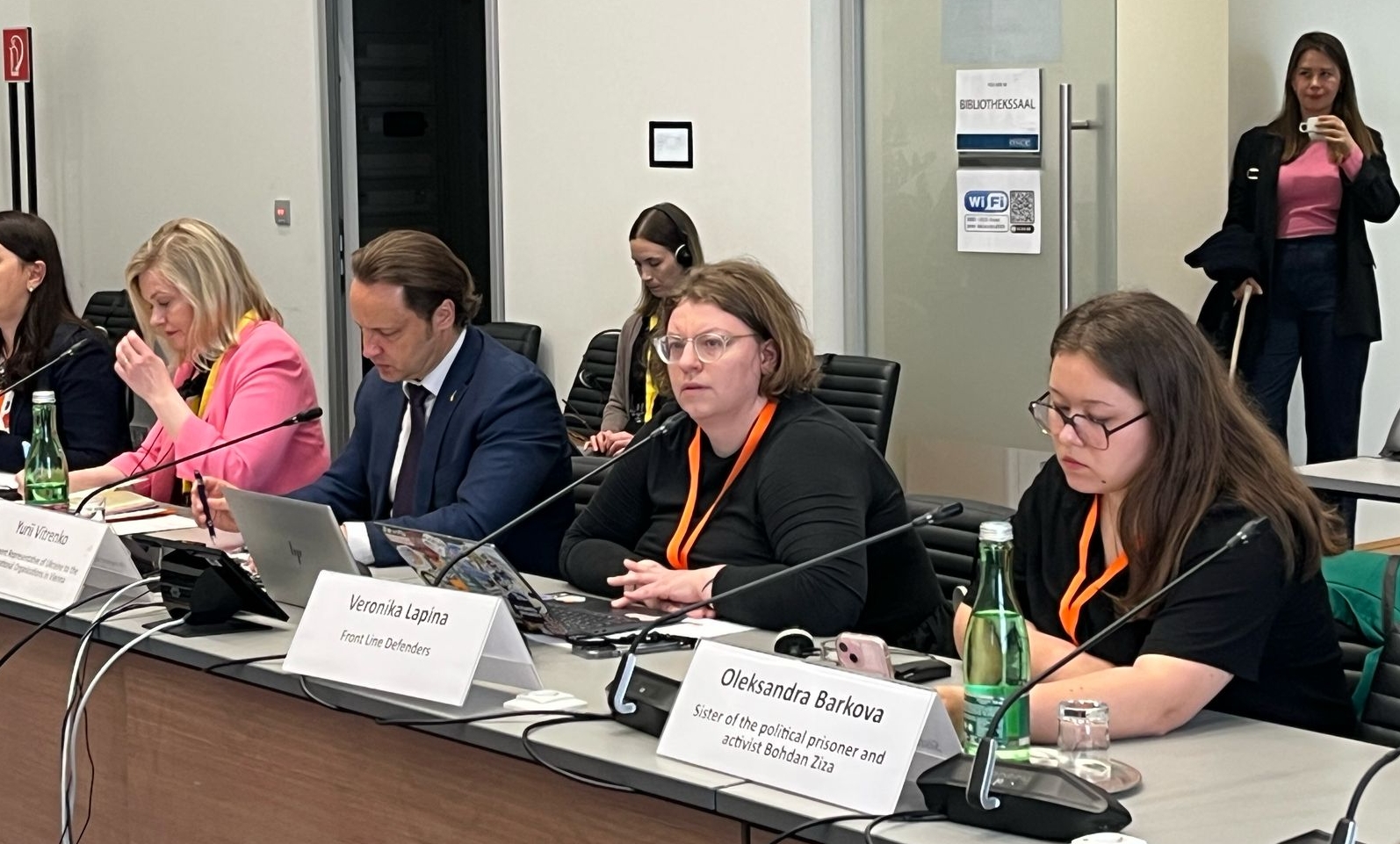
In conclusion, Veronika Lapina, a representative of the international organisation Frontline Defenders, called on diplomats to listen to the words of Ukrainian activists and relatives of the victims. “We must mobilise as many resources as possible – both for Ukraine and for Ukrainian human rights defenders,” she said.
The event was organised by the Human Rights Centre ZMINA with funding from the EU and support from the Permanent Mission of Ukraine to the International Organisations in Vienna, the Permanent Mission of Finland to the OSCE and the NGOs Frontline Defenders, Human Rights House Foundation and the Netherlands Helsinki Committee.
The Head of ZMINA, Tetiana Pechonchyk, also joined a panel session on freedom of peaceful assembly, and the organisation’s Legal Analyst, Onysiia Syniuk, spoke at a special event entitled “Civil Society in Russian Captivity: Enforced Disappearances and Arbitrary Detentions by Russia as a Tool to Erase Civic Space in Occupied Territories of Ukraine“.
This trip was made possible with the financial assistance of the European Union. Its content is the sole responsibility of the Human Rights Centre ZMINA and does not necessarily reflect the views of the European Union.
For reference. The OSCE Supplementary Human Dimension Meeting is a special forum organised several times a year by ODIHR (Office for Democratic Institutions and Human Rights) to discuss topical issues in the field of human rights, democracy, the rule of law and non-discrimination. The meetings are attended by representatives of OSCE participating States, international organisations and civil society. The goal is to share experiences, identify challenges and develop recommendations to improve compliance with commitments in the humanitarian dimension.
If you have found a spelling error, please, notify us by selecting that text and pressing Ctrl+Enter.

